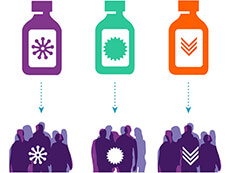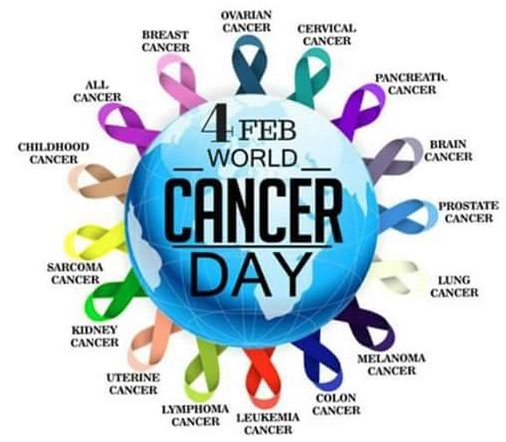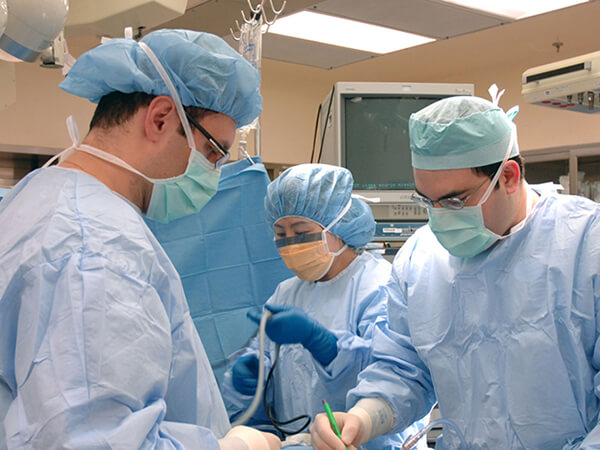|
MSM (MethylSulfonylMethane) is an abbreviation of methylsulfonylmethane, an organic form of sulfur. The chemical formula of MSM is CH3SO2CH3. It is the form in which sulfur is biologically active and appears in nature in all living organisms.
$39.95
Iodine is a trace mineral that is vital to the function of the thyroid gland. The human body does not make iodine, so all iodine intake must come from either our diet or from supplements.
|
|
Cancer Treatment >
Surgery
 Dr. D. Kutsco, MD, Consultant Surgical Oncologist & CMD Surgery to Treat Cancer Surgery, when used to treat cancer, is a procedure in which a surgeon removes cancer from your body. Surgeons are medical doctors with special training in surgery. How Surgery Is PerformedSurgeons often use small, thin knives, called scalpels, and other sharp tools to cut your body during surgery. Surgery often requires cuts through skin, muscles, and sometimes bone. After surgery, these cuts can be painful and take some time to recover from. Anesthesia keeps you from feeling pain during surgery. Anesthesia refers to drugs or other substances that cause you to lose feeling or awareness. There are three types of anesthesia:
Types of SurgeryThere are many types of surgery. The types differ based on the purpose of the surgery, the part of the body that requires surgery, the amount of tissue to be removed, and, in some cases, what the patient prefers. Surgery may be open or minimally invasive.
Because minimally invasive surgery requires smaller cuts, it takes less time to recover from than open surgery. To learn about the type of surgery that may be used to treat your cancer, see the PDQ® cancer treatment summaries for adult and childhood cancers. Who Has SurgeryMany people with cancer are treated with surgery. Surgery works best for solid tumors that are contained in one area. It is a local treatment, meaning that it treats only the part of your body with the cancer. It is not used for leukemia (a type of blood cancer) or for cancers that have spread. Sometimes surgery will be the only treatment you need. But most often, you will also have other cancer treatments. How Surgery Works against CancerDepending on your type of cancer and how advanced it is, surgery can be used to:
Risks of SurgerySurgeons are highly trained and will do everything they can to prevent problems during surgery. Even so, sometimes problems do occur. Common problems are:
Where You Have SurgeryWhere you have surgery depends on:
You can have outpatient surgery in a doctor’s office, surgery center, or hospital. Outpatient means that you do not spend the night. Or, you may have surgery in the hospital and stay the night. How many nights you stay will depend on the type of surgery you have and how quickly you recover. What to Expect before, during, and after SurgeryBefore SurgeryBefore surgery, a nurse may call you to tell you how to prepare. He or she may tell you about tests and exams you need to have before the surgery. Common tests that you may need, if you have not had them lately, are:
You may not be able to eat or drink for a certain period of time before the surgery. It is important to follow the instructions about eating and drinking. If you don’t, your surgery may need to be rescheduled. You may also be asked to have supplies on hand for taking care of your wounds after surgery. Supplies might include antiseptic ointment and bandages. During SurgeryOnce you are under anesthesia, the surgeon removes the cancer, usually along with some healthy tissue around it. Removing this healthy tissue helps improve the chances that all the cancer has been removed. Sometimes, the surgeon might also remove lymph nodes or other tissues near the tumor. These tissues will be checked under a microscope to see if the cancer has spread. Knowing if the nearby tissue contains cancer will help your doctors suggest the best treatment plan for you after surgery. After SurgeryOnce you are ready to go home after surgery, the nurse will tell you how to take care of yourself. He or she will explain:
You will have at least one more visit with the surgeon a week or two after you go home. For more complex surgeries, you may need to see the surgeon more often. You may have stitches removed, and the surgeon will check to make sure you are healing as you should. Special Diet Needs before and after SurgerySurgery increases your need for good nutrition. If you are weak or underweight, you may need to eat a high-protein, high-calorie diet before surgery. Some types of surgery may change how your body uses food. Surgery can also affect eating if you have surgery of the mouth, stomach, intestines, or throat. If you have trouble eating after surgery, you may be given nutrients through a feeding tube or IV (through a needle directly into a vein). Talk with a dietitian for help with eating problems caused by surgery. For more information about coping with eating problems see the booklet Eating Hints. Working after SurgeryYou will need to take time off from work to have and recover from surgery. You may need only 1 day or many weeks. How long you need to recover depends on many factors, such as:
Ask your doctor how long you will need to recover from your surgery. If you expect a longer recovery time, talk with your employer to find out if you can take medical leave. Check to make sure your health insurance will cover costs if you are on medical leave and not working for a time. |
|
|

OPEN 24 HOURS: ACCIDENT EMERGENCY, LAB SERVICES, IMAGING SERVICES & PHARMACY











